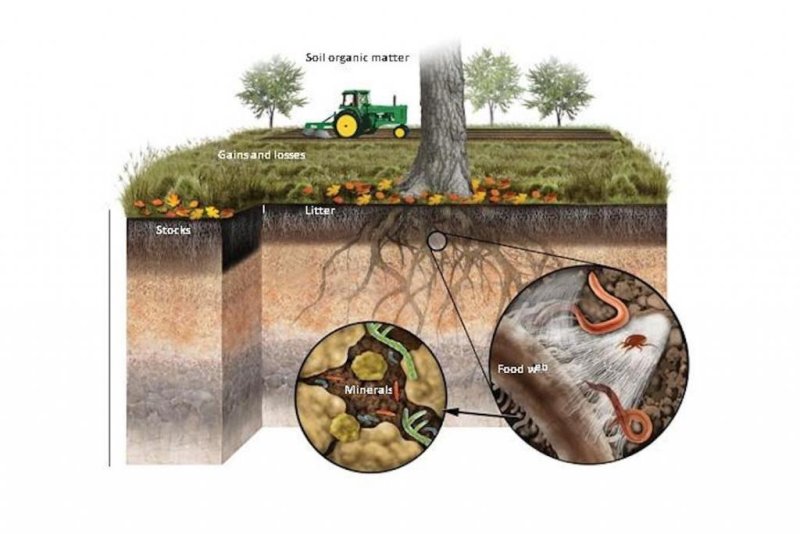New research shows soil minerals can help store large amounts of carbon a few feet beneath the surface. Photo by Marc Kramer, et al./Biogeochemistry Letters
Nov. 8 (UPI) -- One of the planet's biggest potential carbon sinks doesn't require carbon to sink very far. According to new research, soil minerals buried just a few feet below the surface can store vast amounts of carbon.
Marc Kramer, an assistant professor of environmental chemistry at Washington State University Vancouver, believes the shallow carbon sink could help reduce the amount of CO2 stored in the atmosphere and curb global warming.
The soil can store three times more carbon than Earth's atmosphere, but Kramer says few studies have explored its carbon-storing potential. He likens its mysteries of those of the deep ocean.
"Hardly anyone has been down there and they just found a new species of octopus," he said in a news release. "We know more about the surface of Mars than we do about either oceans or soils on Earth."
Kramer and his research partners previously characterized the carbon-storing abilities of soil in the journal Annual Review of Ecology, Evolution and Systematics. This week, Kramer published a new study in the journal Biogeochemistry Letters, detailing the specific minerals associated with carbon and nitrogen storage a few feet beneath the surface.
In order to utilize the soil's carbon storing abilities, Kramer says we need to better understand how the carbon cycle works. We also need to prevent this carbon sink from being disrupted.
Some 75 percent of all the carbon stored in the top three feet of soil is impacted by agriculture, grazing or forest management. Kramer's work has previously shown how improved management practices can help the soil on farms take up more carbon instead of releasing carbon back into the atmosphere and ocean.
Such practices will become more imperative as agriculture continues to expand to meet the needs of the planet's growing human population.
"Don't forget, we need to double food production in the next 40 years," Kramer said.















